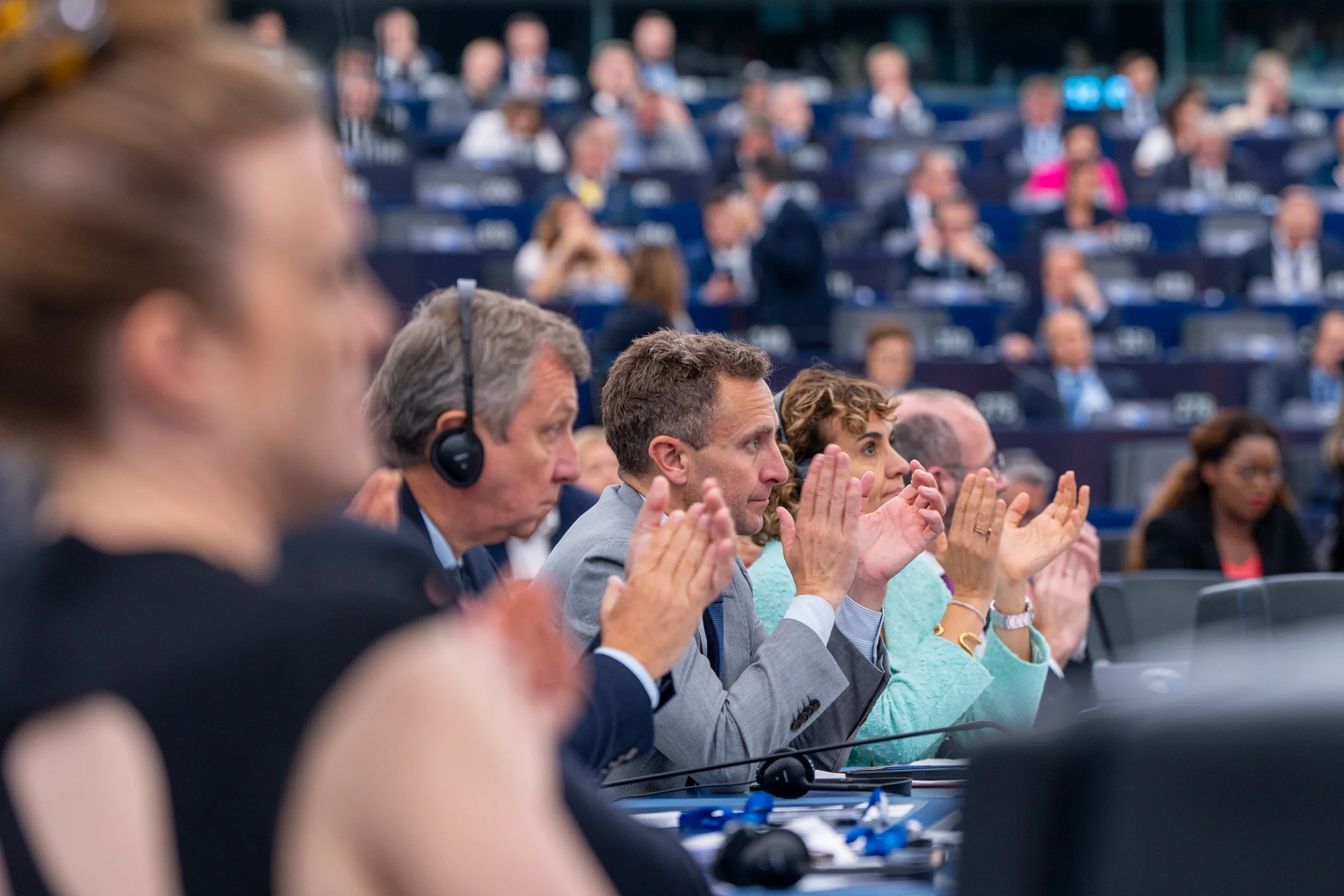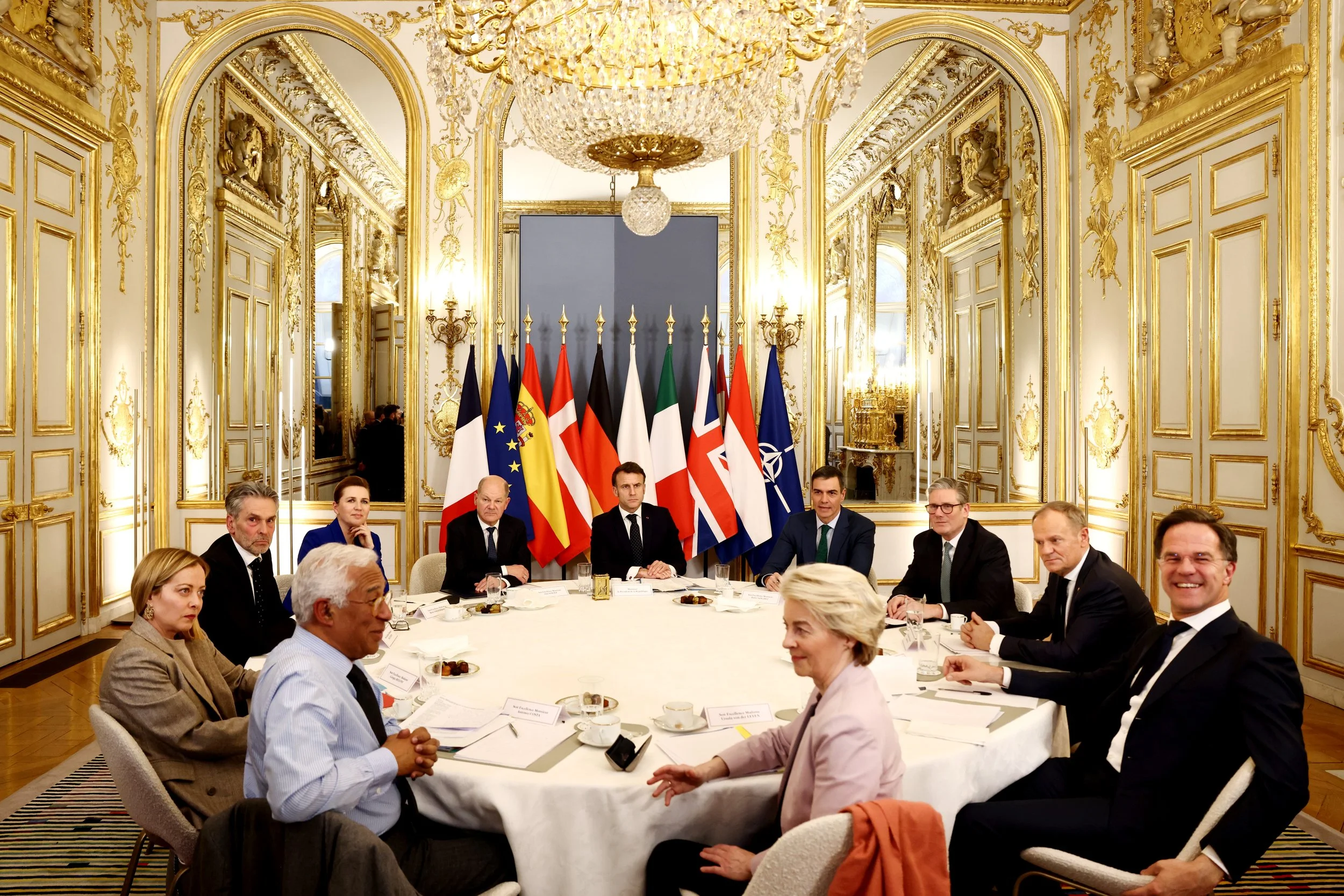The West’s only hope is a United Europe
Parliament approves the “von der Leyen II” Commission. Image Credit: European Parliament from Flickr.
The Democrats suffered a devastating blow in the 2024 election. The party clearly needs new leadership to regain the base that has deserted it in recent years and build a coalition broad enough to send the Democrats to the White House. If the party wishes to do so, the race has a clear frontrunner: Governor Gretchen Whitmer of Michigan.
The current U.S. political landscape is different from the one Obama won in 2008. The last few decades have seen America undergo a fundamental shift in its core base. This shift has seen the average voter reject the traditional centrist appeal of most candidates in favour of a more polarised and ideological approach. Deepening divides amongst everyday Americans, whether that be cultural, economic, or social, combined with the weaponised mass media, has shifted the balance. The Democratic Party needs to respond to this change, something I believe they failed to do in the 2024 election and to do so, they need to choose their next candidate carefully.
Kamala Harris has remained open to running again in four years as California Governor Gavin Newson has seemingly even begun to position himself as a presidential hopeful. Other names have also arisen since the election, including Pete Buttigieg, Secretary of Transportation, a capable and seasoned public speaker who has frequented right-wing media to positive reviews, and Josh Shapiro, the popular Pennsylvanian Governor. While all bring appeal and strength to the position, they are the wrong candidates for an America that is increasingly resilient to establishment politics.
Many would praise Harris for her strong run and Buttigieg for his strong personal profile, and I am sympathetic. I genuinely believe Kamala Harris would have been an incredible President if given the chance. However, the world of politics is seldom fair, and if the Democrats wish to win back the White House from a MAGA candidate in 2028, they will have to begin facing the reality of their situation. Picking popular candidates inside Democrat strongholds will only enthuse a base as extensive as the one you started with, and that was the mistake with Harris. She was heavily tied to the prior administration, unable to sever herself from the supposed failings of the current President, and she could not enthuse an American public burdened with inflation and economic upheaval. This is why the party needs fresh leadership, and there is no shortage of rising stars inside the party who would enthuse the disenfranchised American public.
Congresswoman Alexandria Ocasio-Cortez has been prominent in the party’s progressive wing since assuming office in 2019. Her district, which is majority Hispanic, voted both for her and Trump in large numbers. Many of her constituents have justified this decision as they saw both her and Trump as disruptors of the status quo in Washington, which earned them respect from those who felt establishment politicians had failed them. If the rising prominence of split-ticket voting doesn’t give the Democratic party a wake-up call to their candidates and messaging, I’m unsure what will. Whilst she is formidable in Congress and a popular candidate amongst progressives, she is unlikely to be a presidential candidate for the foreseeable future. However, Congresswoman Ocasio-Cortez is not alone; Governor Gretchen Whitmer could win the White House with the right messaging, campaign, and momentum.
The landscape has shifted entirely. Economic policy does remain the most persuasive issue to voters by a large margin, which the 2024 campaign lacked a clearer position on to its detriment. The Democratic Party must return to its traditional appeal to unite the middle class, blue-collar, progressives, and minority groups of America. Many Americans voted for Trump out of a misguided view that he would fix the economy and cared little for the implications such a vote would have on other policy areas. Democrats have failed once again to run successfully on the economy, and it should be one of the main focuses of their campaign in addition to the candidate’s public image.
The European Parliament during the election of the President of the European Commission on July 18th, 2024. Image credit: European Parliament from Flickr.
Many in the legal community would consider the European Union to already be a federation in everything but name, though they would seldom admit this. The European Union’s approach to supremacy of EU law, the influence of the European Commission and European Parliament, and the unified European currency, have all the hallmarks of a singular nation. Yet Europe remains disunited to the outside world.
Europe is, in my opinion, functionally, with the exceptions of those not part of the European Union, a federation in everything but name only.
The legal scholars and politicians of the European Union have, in my opinion, sought to keep that reality from reaching the general public in fear of what it would mean for European stability. They have cleverly weaved legal webs so complicated that the institutions are inaccessible to the average layman and sought to rename any position or process that seems somewhat federal. All because no country wants to admit it is subservient to anything but itself; see Brexit.
However, the world is changing and, whilst before, a federalised Europe may have seemed arbitrary or unnecessary, forces in the world may have pushed Europe to finally admit what they have been for years: a European Federation.
In Autumn of 2024, the European Union conducted one of its “Eurobarometer” polls. In it, the data showed a significant and striking trend that, I believe, marks the beginnings of Europe’s final stages towards federalisation.
51% of respondents said they trusted the European Union as an institution, a strikingly larger percentage than the 33% who said they trusted their national government. Additionally, the main long-term concern amongst respondents was European “security and defence” and, in the short term, “ensuring peace and stability”.
The European Union does have defensive capabilities, but to call it a military would be ambitiously premature. Since the Second World War, NATO (the North Atlantic Treaty Organisation) has managed Western security and defence under the principle of collective defence under Article 5 of the Atlantic Charter. Thus, few have felt the need for an international European army. However, the foundation of NATO is a unified vision: a shared security interest.
In recent years, under the first and now seemingly the second Trump administration, the United States of America and Europe have taken differing views on what Western security and defence should mean. President Trump seems to want to appease Putin and Russia in order to end the conflict as soon as possible in Ukraine regardless of what that means for Ukraine and Europe. Europe, obviously, disagrees.
According to that same EU poll, a majority of Europeans are in favour of supporting Ukraine, even militarily and when the U.S. announced their summit in Saudi Arabia to meet the Russians to discuss ending the war in Ukraine, European leaders, NATO, and the EU met in France for their own security discussions. Whilst it seemed to slip under the radar of the mainstream media outlets of the world, it announced very loudly to the world, and to Russia, something Putin has been hoping for years: Europe’s main defensive ally, the U.S., no longer will unilaterally support its European allies unconditionally.
Without the United States, Europeans are now coming to realise that they are capable of co-ordinating their own defence.
European Leaders meet at the Elysee Palace for Ukraine talks on February 17th, 2025. Image credit: Simon Dawson, No. 10 Downing Street from Flickr.
Based on the data, it seems those same Europeans are looking to the European Union as the final buffer between Europe and Russian aggression. I believe this shows a shift in the main argument against European federalisation presented thus far: optics. European citizens now look to the European Union, what was originally a trade community, as a more reliable institution than their own governments and as a defensive structure. Whether that be due to growing confidence in the European project or the fear of further incursions by the Russian Federation.
Regardless, it seems that no longer does the European Union need to obscure itself with political mirages or bureaucratic trickery, the people of Europe are ready and willing to see the European Union take further steps in centralising key government institutions.
Whilst European defence has become a major drive for greater European unity, other factors and polls have indicated that public perception has reached a point where the public is willing to accept a European Federation. In 2022, a Euroskopia poll saw 64% of respondents agree that the President of the European Commission should be directly elected. With that change, sweeping reforms could be made to both the European Parliament but to the European Council as well as other major EU institutions to both democratise and streamline the process.
Mette Frederiksen after visiting wounded Ukrainian soldiers on November 19th, 2024. Image credit: President of Ukraine from Flickr.
Europe is now facing a choice, and a simple one I believe. Either Europe continues to pander towards an ever adversarial and unpredictable United States government, whom the continent has been totally reliant on for security, or it can choose its own priorities. It seems that this view has become mainstream as more and more European leaders raise defence spending and speak out against the new administration. Danish Prime Minister Mette Frederiksen announced that Denmark’s defence spending was to exceed 3% of GDP and that defence was to become a priority for her government. In defence of her policy push, the Prime Minister laid out European policy regarding this matter to be simple: “does the world look uneasy? Yes. Is there reason to believe it will be over soon? No”. This sentiment should be the driving force in European integration.
Separate, Europe is weakened. United, Europe is unstoppable and not just militarily.
If the European Union were to form a single country, the country’s GDP would be $18.59 trillion, making it the world’s second largest economy. It would have a population of around 449.2 million which would make it the world’s third largest country by population.
As the United States of America’s place as the leading country for Western democracy continues to wain under a second Trump presidency, the world needs a natural successor if the West is to counter Russian aggression in Europe; Chinese influence in Asia and Africa; and the rise of authoritarianism. No country in Europe is singlehandedly capable of taking up the mantle. Thus, the world needs another option, another economic, military, and cultural powerhouse: a United Europe.
Despite the polls, the world is never dictated by statistics or potential. It is truly unlikely that Europe will ever unify more than they already have, especially into a singular nation. However, the looming threat of Russian aggression and abandonment of defence by the U.S. could drive Europe to further centralise beyond its economy and freedom of movement. It could lead to the voluntary establishment of the first ever true European army, whether that be through NATO or not, given the United States’ potential withdrawal.
Whether or not that gets taken further, and Schuman’s vision becomes a reality, is up the leaders and peoples of Europe. A future that I hope comes to fruition, for the sake of Western democratic values as well as the future survival of the European continent.





